Recently, the University of Natural Sciences under the Vietnam National University, Hanoi organized a workshop on the topic of selecting prestigious international journals to publish scientific research results. At the workshop, representatives of the University's Department of Science and Technology shared some warning information from the international scientific community about the reputation and quality of some international publishers, thereby warning scientists in their unit, and at the same time proposing solutions to prevent publication in "predatory" journals and "gray" journals ("predatory" journals are always called black journals, while "gray" journals are on the border between black and white - PV ).
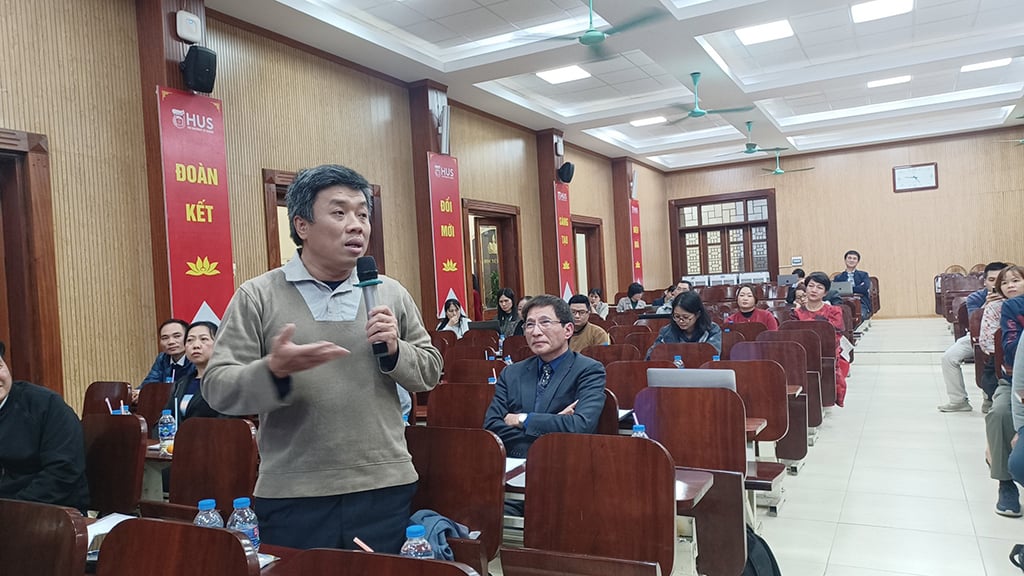
Professor Nguyen The Toan, Head of the Department of Physics (University of Natural Sciences, Vietnam National University , Hanoi ), spoke at the workshop on selecting prestigious international journals.
WARNING FROM THE INTERNATIONAL COMMUNITY
According to Associate Professor Hoang Thi Minh Thao, Head of the Department of Science and Technology, in recent years, the number of international publications of the University of Natural Sciences has grown steadily, currently exceeding 500 articles/year. The quality of publications is generally quite good, most of the articles have high academic reputation. Up to now, the school has not recorded any reports of violations of academic integrity such as buying and selling scientific articles, falsifying data, publishing many articles in "predatory" journals...
However, there is a phenomenon of some articles published in 3 publishing houses: MDPI, Hindawi and Frontiers. According to statistics, the number of articles published by the school in these 3 journals is not much, the rate is not high (about 6%, calculated from 2018). Most of them are published in journals Q1, Q2 of MDPI; Q2, some Q1, Q3 of Hindawi; most of Q1 of Frontiers (Q is the prestige index of the journal, the lower Q, the better the prestige - PV). The sources of support are diverse: state topics, foreign funding, funding from the NAFOSTED Fund... It is worth noting that the rate of articles published in these publishing houses of Hanoi University of Science tends to increase.
Meanwhile, the reputation and scientific quality of the journals of the above 3 publishing houses are currently "hot" issues, receiving attention from the world's scientific community. The incident that made the above 3 publishing houses the center of attention of "infamy" is the research work of Professor M.Az. Oviedo-Garcı́a published in 2021 in an Oxford University journal, talking about a number of problems of MDPI publishing house journals. In it, Professor Oviedo-Garcı́a raised a number of problems of MDPI publishing house journals such as high self-citations and much higher than the top journals in the list. Analysis of the citation model shows that they could be "predatory" journals; the total number of articles increased too quickly and varied greatly between journals, short review periods, etc.
This year, there was another research publication related to the quality of the journals of the two publishers Hindawi and Frontiers by authors Mark A. Hanson, Pablo Gómez Barreiro, Paolo Crosetto, Dan Brockington. This work talks about the pressure to publish, about the appearance of some indicators affecting the quality of articles published in journals of MDPI, Hindawi and Frontiers. "This is the information that makes the scientific community interested in these three publishers", Associate Professor Thao shared.
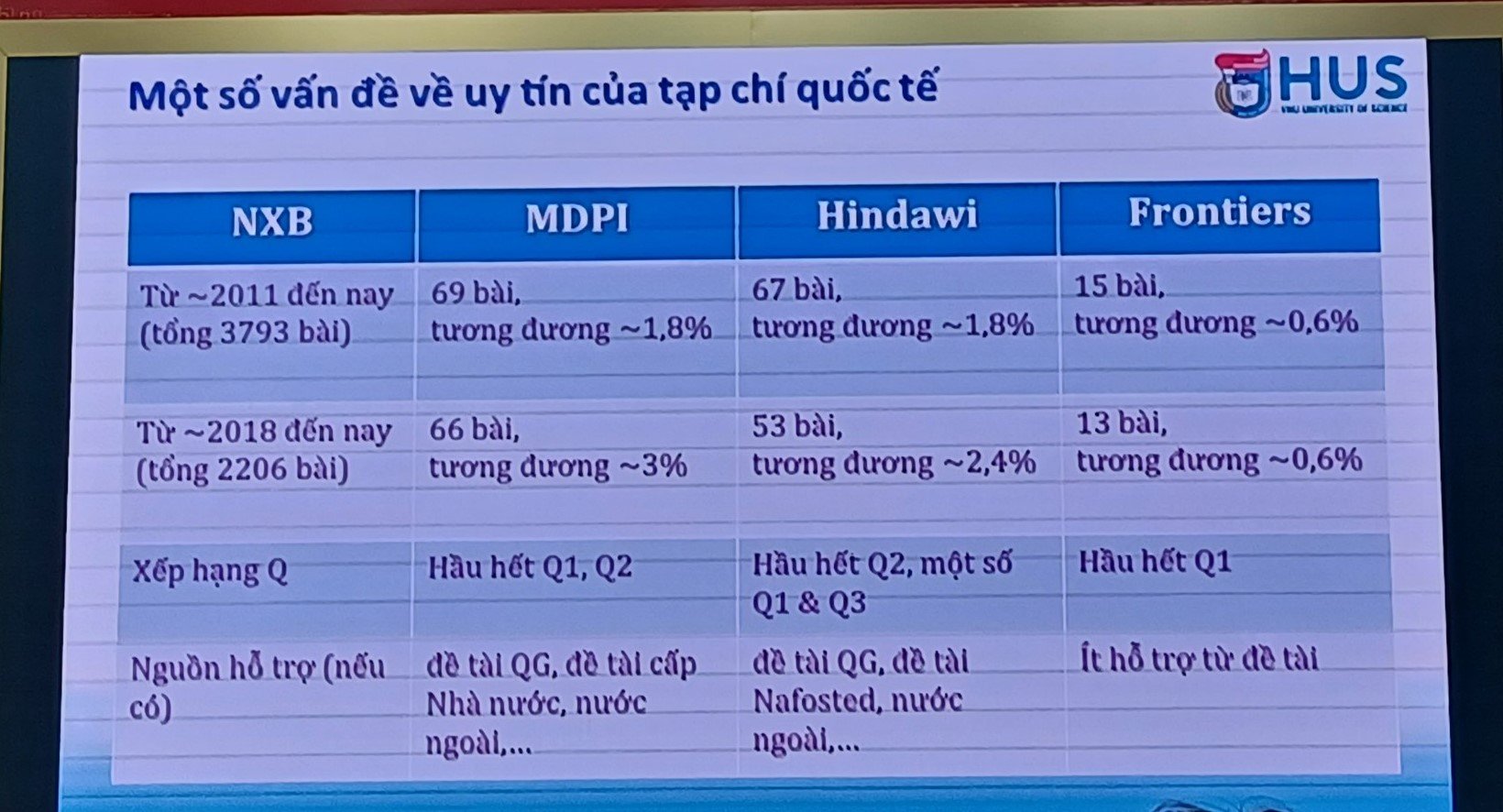
Number of articles of the University of Science (Vietnam National University, Hanoi) in 3 publishing houses: MDPI, Hindawi and Frontiers
REACTIONS OF COUNTRIES
Associate Professor Thao also said that, faced with the above situation, some countries have had initial reactions. In July, the Malaysian Ministry of Higher Education issued a notice requiring public universities not to use budget funds to pay for publishing articles in all journals under the three publishing houses MDPI, Hindawi and Frontiers.
In China, the Chinese Academy of Sciences has blacklisted many journals from MDPI, Hindawi and Frontiers (including ISI journals in Q1 and Q2). Also in China, Zhejiang University of Industry and Commerce has blacklisted all journals from these three publishers (early 2023), not supporting publication fees and not taking them into account when evaluating scientists.
The Harbingers project, which includes scientists from nine countries, compiled national responses to "grey" journals. Countries with specific responses (at the national level) expressing concern about "grey" journals include: Malaysia, China, Spain, France, and Poland.
In Vietnam, the VINIF Fund (of Vingroup Corporation) announced that it will only accept articles not in journals published by MDPI and Hindawi (from August 2020). Ho Chi Minh City University of Law (November 2022) announced criteria for identifying unreliable international journals and will not reward articles published in these journals. The University of Economics and Law (Vietnam National University, Ho Chi Minh City) also advised its scientists to be cautious when publishing in journals published by MDPI, Hindawi and Frontiers.
49% REQUESTED NOT TO SUPPORT ARTICLES PUBLISHED IN CONTROVERSIAL PUBLISHING HOUSES
The Department of Science and Technology of the Hanoi University of Science conducted a survey revolving around the issue of choosing a reputable journal to publish scientific works. Through the survey, it is shown that there are still too many questions among scientists, especially young scientists, in international publication. For example, how to recognize a suitable journal for international publication; how to avoid "predatory" journals, fake journals, low-reputation journals; how publication in these journals affects the reputation of scientists...
Or when asked whether the school should support articles published by controversial publishers, the answers were quite scattered. Only 49% said no support; 27.5% said yes but at a lower level than other articles; 23.5% said just support as usual. Therefore, the Department of Science and Technology chose a compromise solution to propose to the school board, which is to prioritize support for articles published in prestigious journals; not prioritize support for articles published in journals with signs of low quality.
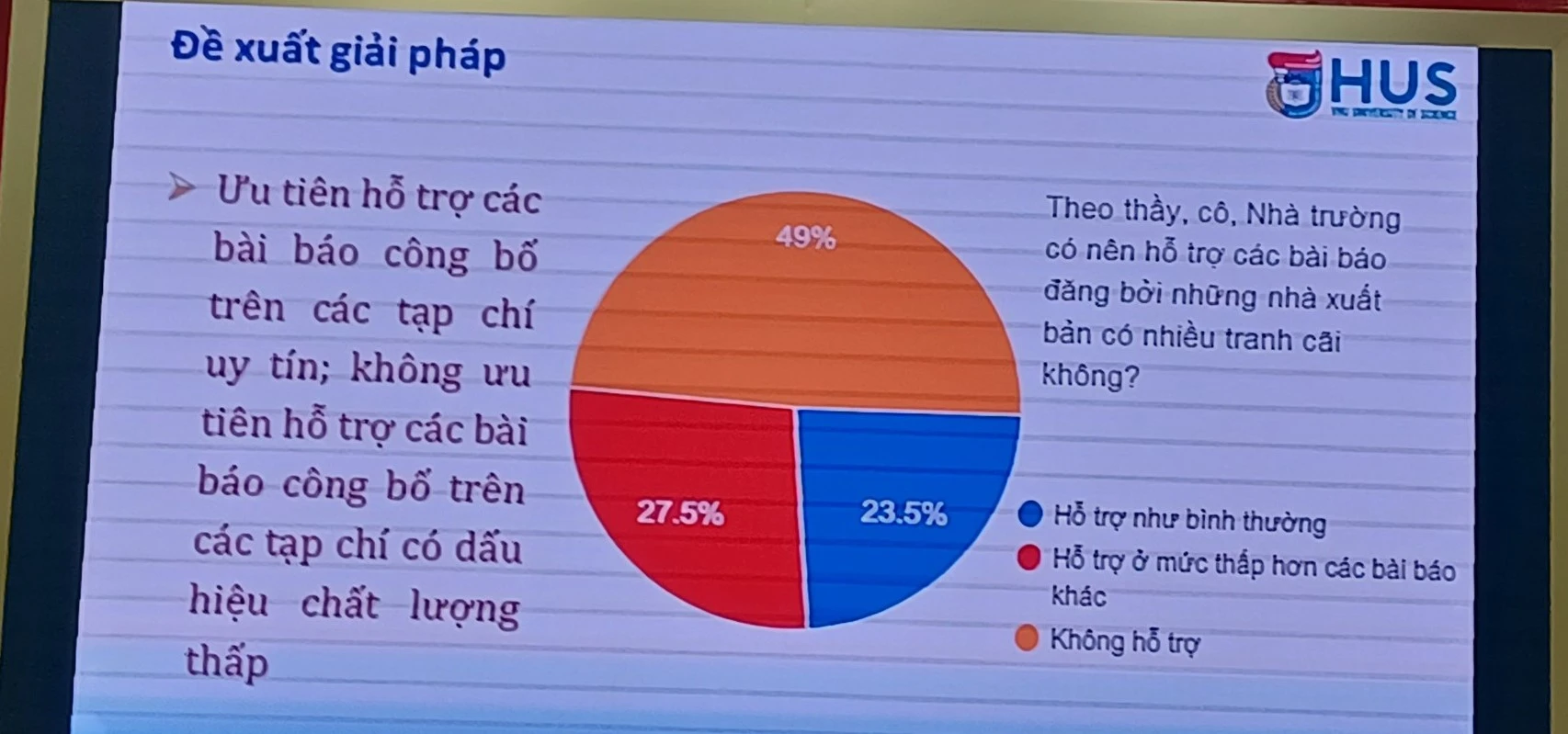
Only 49% said they would not support articles published by controversial publishers; 27.5% said they would support them, but to a lesser extent than for other articles; 23.5% said they would support them as usual.
But when asked whether articles published by controversial publishers should be considered for awards, honors, or for selecting strong research groups, the answers were more consistent. The majority (72.5%) said no, while 27.5% said yes. Therefore, the chosen proposal is to pay more attention to the quality of published works when considering awards, honors, or selecting strong research groups.
Associate Professor Thao also said that the Department of Science and Technology has proposed that the school soon develop and promulgate a set of rules on academic integrity, issue documents guiding the identification of "predatory" journals, regularly update information on journals with quality issues, and share the latest research on the reputation of journals.
According to Associate Professor Tran Quoc Binh, Vice Principal of Hanoi University of Science, the school always tries to create the best conditions for scientists to publish scientific publications in general and international publications in particular, but the school also requires its scientists and staff to uphold academic integrity, because only then can the reputation of the scientists themselves as well as the university be maintained.
The first element is to ensure scientific integrity.
Professor Nguyen The Toan (Faculty of Physics, Hanoi University of Science) said that the Q or H-Index measures are only relative measures. No matter where the publication is, how much Q or H-Index, or which journal, the first factor that scientists need to care about is ensuring scientific integrity. Once they have entered the field of science, they need to know which journals to publish in that are appropriate to their field of expertise; they need to have the ability to distinguish between reputable journals and "fake" journals.
Once you have entered the field of science, you should keep in mind that you are doing real science. Don't choose the easy way because you think you are just starting out. "If you post a fake article or a low-quality article today, it will be a stain on your scientific career later. Think about the future, do good work, and maintain scientific integrity," Professor Toan shared.
Source link


![[Photo] Joy on the new Phong Chau bridge](https://vphoto.vietnam.vn/thumb/1200x675/vietnam/resource/IMAGE/2025/9/28/b00322b29c8043fbb8b6844fdd6c78ea)
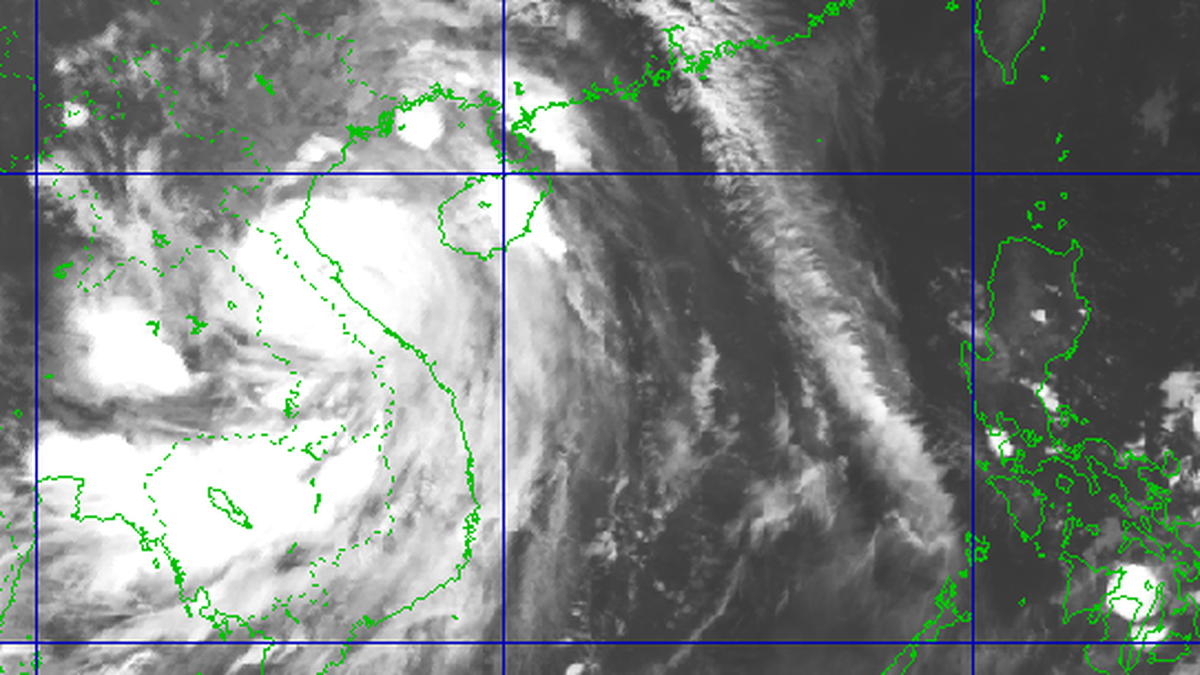
![[Photo] The 4th meeting of the Inter-Parliamentary Cooperation Committee between the National Assembly of Vietnam and the State Duma of Russia](https://vphoto.vietnam.vn/thumb/1200x675/vietnam/resource/IMAGE/2025/9/28/9f9e84a38675449aa9c08b391e153183)

![[Photo] High-ranking delegation of the Russian State Duma visits President Ho Chi Minh's Mausoleum](https://vphoto.vietnam.vn/thumb/1200x675/vietnam/resource/IMAGE/2025/9/28/c6dfd505d79b460a93752e48882e8f7e)










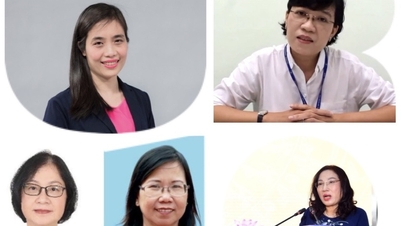


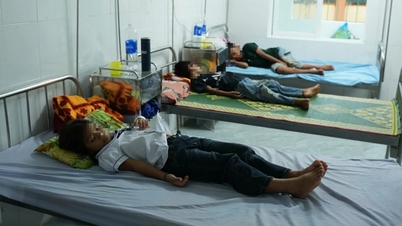

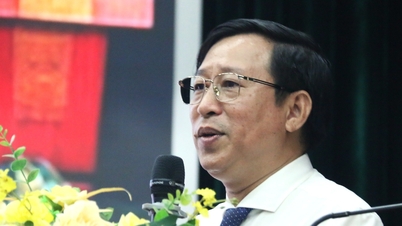






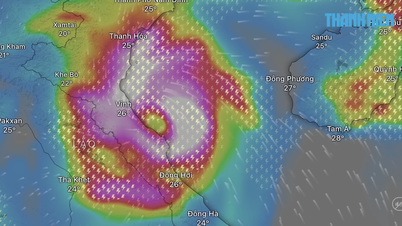


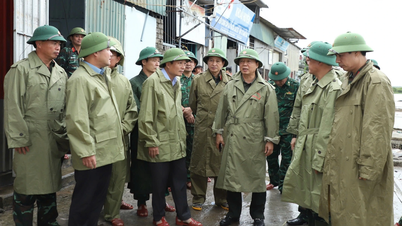

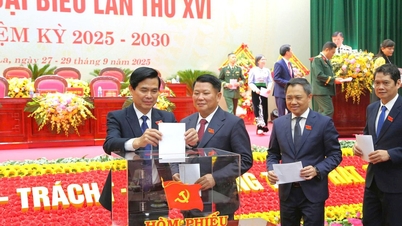

























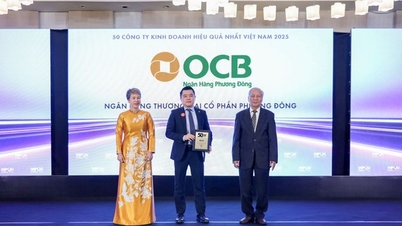

















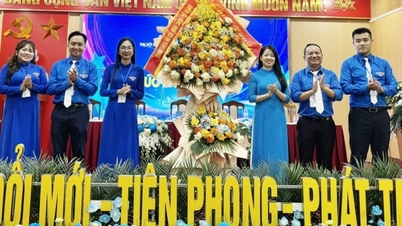
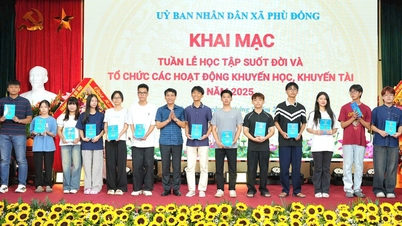
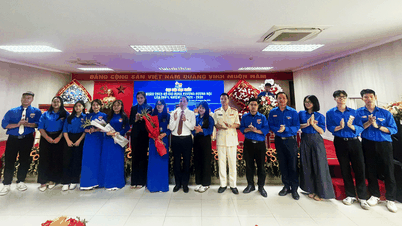
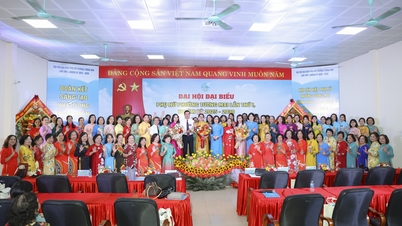











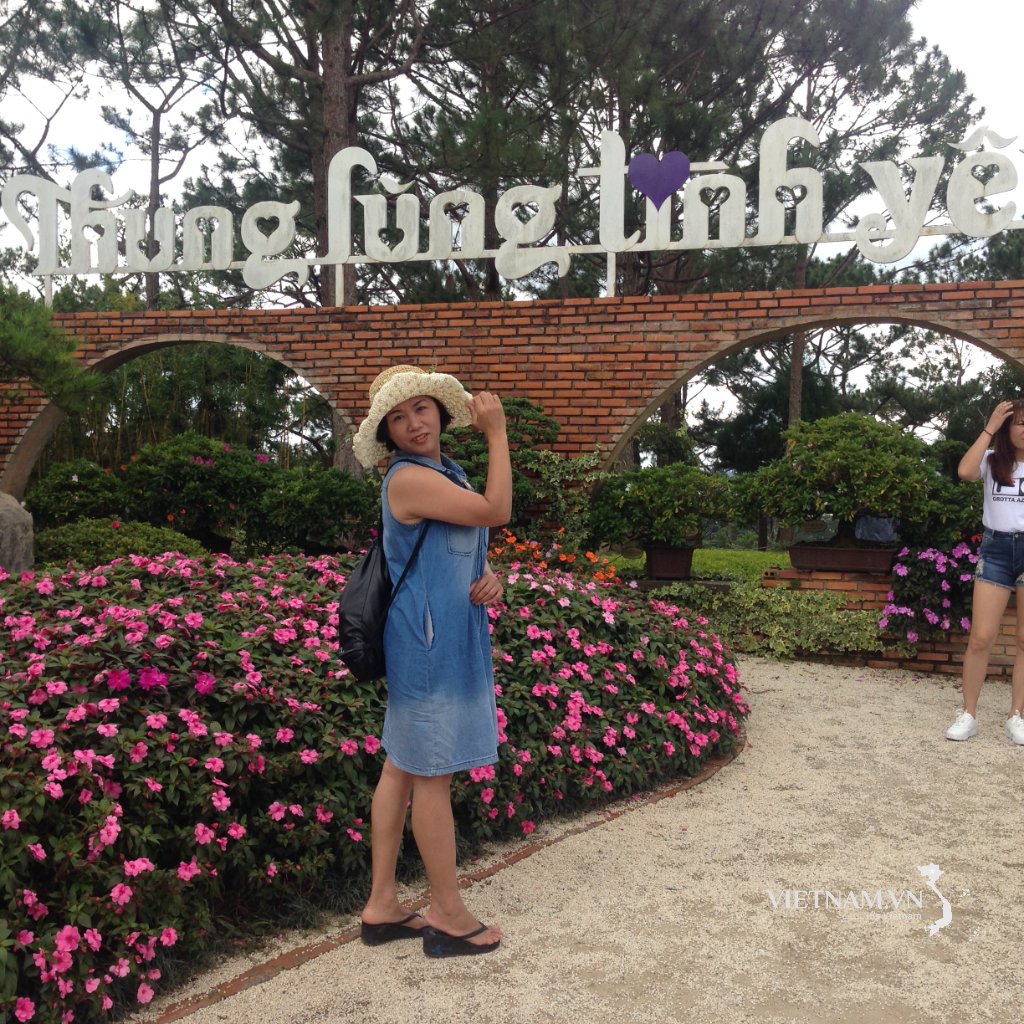


Comment (0)